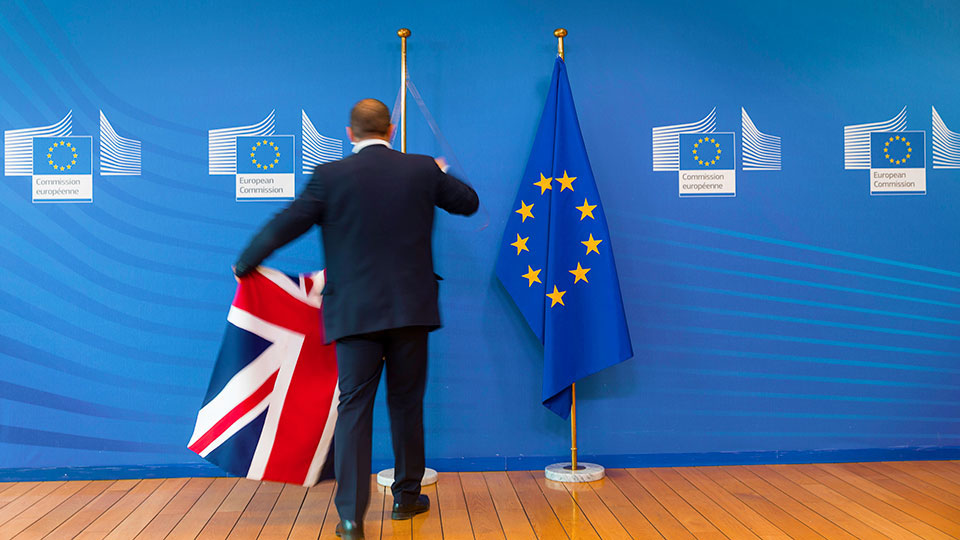(Editor’s note: Elena Kalmykova in Paris also contributed to this post including research and writing several sections.)
Approaching the Brexit deadline (again), many European Union nationals residing in the United Kingdom – as well as those wishing to move to Britain post-Brexit – are still wondering about their fates and futures. (There’s a lot of info on the Web concerning Britain breaking ties with the EU and the opportunities and challenges it may bring.)
The final outcome of Brexit – scheduled now for 31 January 2020 – is still uncertain, with everything turning on the 12 December general election. Labour and Social Democrats have at least hinted at the possibility of a second Brexit referendum while Conservative Prime Minister Boris Johnson has vowed to take the UK out of the EU even if it means a no-deal Brexit. Which – theoretically – could lead to a mass population exchange, with a million-plus British expats forced to return to the UK and millions of European citizens forced to leave the UK.
So, as we’ve written so many times before, it’s no clearer now than on 23 June 2016 whether there will be a Brexit deal to leave with a long transition period, or a hard Brexit with an abrupt severing of ties with the EU.
That said, UK officials are preparing for both eventualities.
Here’s what we know for certain: The EU Settlement Scheme website launched on March 30.
This is important:
Even if you already had settled status, your permanent residence document will not be valid after 31 December 2020, according to the Gov.UK website. So you have to apply for a new one.
As of late November, government data show slightly more than half – 1.9 million out of about 2.4 million who have applied, – of the estimated 3.5 million EU citizens living in Britain have been granted the new legal status ahead of the 31 December 2020 deadline.
This post will try to answer, or at least simplify, relevant questions that an EU expat living in, or planning to move to, the United Kingdom should be asking. And there are a lot of questions as the UK moves toward a 12 December general election that should – maybe – bring more clarity.
Of course, we’ve been saying that since 2016.
Uncertainty reigns
The uncertainty around Brexit has caused a wave of concern among the European population in the UK. Part of that is because before Brexit, EU citizens weren’t required to register in the UK. So no one knows exactly how many EU citizens Brexit will affect. Conversely, because they often only have a National Insurance Number, some EU citizens have a difficult time proving they live legally in the UK.
“It’s a slap in the face to pay taxes for 10 years and then find out that the state doesn’t even have your records,” Euractiv quotes EU citizen as saying.
Settled vs. pre-settled
When and how long EU citizens have lived in the UK is crucial because it could determine their ultimate status, either “settled” or pre-settled.”
Settled status designates that EU citizens:
- started living in the UK by 31 December 2020 (or by the date the UK leaves the EU without a deal)
- lived in the UK for a unbroken 5-year period known as “continuous residence”
Settled status entitles EU expats to stay in the UK as long as they wish, ultimately eligible for British citizenship. They may spend up to five years in a row outside the UK without losing their status.
Pre-settled means they haven’t lived in the UK five consecutive years, and that they can remain in the UK for five years. Pre-settled status allow EU citizens to spend up to two years in a row outside the UK without losing their status.
• If the Parliament of the United Kingdom ultimately approves Boris Johnson’s deal, EU citizens currently residing in the UK don’t need to worry immediately; at the time of separation, they will continue to have basically the same rights as when the UK was in the EU, according to the British government.
• If the UK exits the EU without a deal, EU citizens must have been living in the UK before it left the EU to apply for settled status. The deadline for applying will be 31 December 2020.
Reuters just reported that in the event of a no-deal exit, the EU citizens who’ve not registered could be subject to the British government starting deportation proceedings against them. Home Office officials issued a statement that people who miss the deadline “through no fault of their own” will still be able to apply for settled status.
(Editor’s note: Check here for details about applying to the settlement scheme for expats from the EU, or from Switzerland, Norway, Iceland or Liechtenstein.)
At the risk of repeating ourselves, with elections looming, then a year of negotiations between the EU and the UK possible, nothing is certain.
If the winner of the 12 December British election takes a hard line toward immigration, that could mean rapid and dramatic changes, especially if the government decides not to reciprocate the terms offered Brits in the remaining 27 EU countries.
Applying to the EU Settlement Scheme
This video above from the British government summarizes the paperwork around the application for a new residency status for a European in the UK.
The deadline to apply for a new residency status is June 30, 2021. For people who don’t have access to a computer or smartphone, the British government has announced that many offices would open across the country to allow people to apply in person.
However, at present only 51 offices are in place.
Again, because there is so little documentation, European nationals are still concerned about the UK rejecting their applications.
According to migration experts from Oxford University, the types of people who risk being excluded after Brexit are the most vulnerable populations including those who can’t prove their legal status of residency or right to work in the UK, and who don’t speak English well enough to apply.
They’re estimated to represent less than 7 percent of the current EU population in Britain.
Another important fact to consider is that the settled status is based on British immigration law and thus might lead to European citizens to losing some European/national social rights (pensions, healthcare benefits, etc.) Moreover, the right to bring close family members to the UK after Brexit will most likely be reduced. (You can see more details related to bringing family members here.)
As mentioned earlier, entry and residence conditions in the UK for Europeans post-Brexit are not yet final. While leaving the EU does not mean the end of migration between the EU and the UK, post-Brexit migration policy is sure to be designed with British interest as the priority.
Most of the rights for Europeans wishing to move to the UK after Brexit will depend on the new agreements British officials will sign with the European Union and with each European country outside the EU.
Shortly after the Brexit referendum in 2016, some observers predicted that the UK will sign more favourable agreements with countries it has strong economic ties with (e.g. Germany and France) and will apply stricter rules to countries perceived mainly as sources of workforce (Eastern European countries in particular).
More as we know more.
Co-CEO of Dispatches Europe. A former military reporter, I'm a serial expat who has lived in France, Turkey, Germany and the Netherlands.















